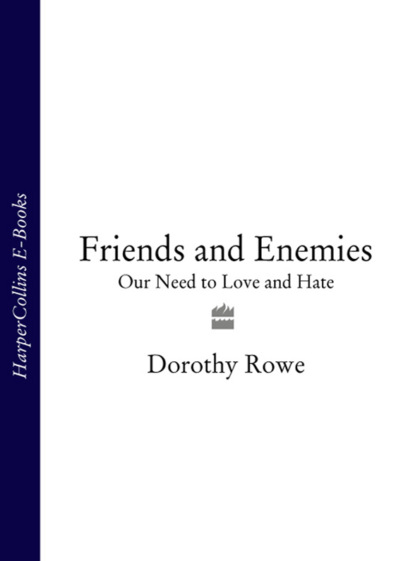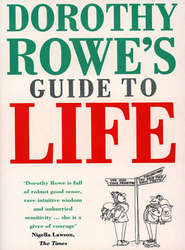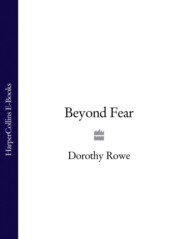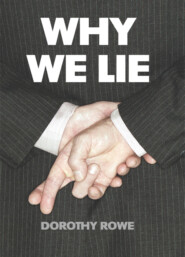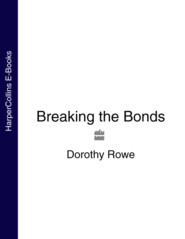По всем вопросам обращайтесь на: info@litportal.ru
(©) 2003-2024.
✖
Friends and Enemies: Our Need to Love and Hate
Автор
Год написания книги
2018
Настройки чтения
Размер шрифта
Высота строк
Поля
About the Publisher (#litres_trial_promo)
PREFACE (#ulink_5d3ef921-6935-527d-a206-03b239c0164e)
Friendship is our greatest invention. No technological construction, no work of art, can compare with the art and skill of friendship which takes us out of the lonely world of our own individual perceptions and puts us close to another person, linked by feelings of love, trust, tolerance, sympathy, generosity, kindness, joy and humour. We can set ourselves the greatest tasks and achieve them, we can become rich, famous and powerful, but all our achievements will be mere dust and ashes if we are friendless. We can have lovers, we can have family, but all these relationships will bring us nothing but misery if they are not imbued with the qualities of friendship.
Friendship has always been of supreme importance in our lives, but today it has taken on a new urgency. Changes in society and in our expectations mean that many people turn to friends to supply what in past years they would have looked for in marriage or family. A businesswoman in South Africa said to me, ‘If I had to choose between my husband and my friend I’d choose my friend. She and I talk every day. We tell each other everything. My husband is all right, but we don’t talk.’
Moreover, while nations no longer engage in huge wars which mobilize many thousands of troops, across the globe we see conflicts which, though they involve smaller numbers of people, inflict terrible violence and suffering on everyone caught up in them. It is essential to resolve these conflicts if we are to overcome the ecological threats to our planet. Enmity is as old as friendship, yet we seem unable to understand why, when friendship is so glorious and so precious, many people choose to be enemies rather than friends. Of course a friendship has to be reciprocal, two people in tune with one another, while you can hate someone without that person hating you. It is even easier to be hated. You do not have to do anything. You just have to exist. You are sure to have some characteristic which someone hates – the colour of your skin, the place you were born, your sexuality, your religious beliefs.
We seem unable to understand how to turn enmity into friendship. The existence of enmity seems to be taken for granted. We deplore revenge and praise forgiveness but we rarely ask, ‘How do we learn the art and skill of friendship?’ or ‘Why is friendship so hard to achieve?’ or ‘Why, when we have been wounded by an enemy, does revenge become an imperative?’ or ‘Can we live without enemies?’ or ‘How does reconciliation become possible?’ or ‘Can we choose to forgive, and, if we can, why don’t we?’
These and other questions about friendship and enmity I examined in discussions with friends, colleagues and workshop participants, and with people I met on my travels in Serbia, Lebanon, Northern Ireland, South Africa, Vietnam and Australia. Such discussions covered both intimate personal experiences and questions arising from national, racial, political, social and religious issues. As I wrote this book conflicts raged around me. NATO bombed Serbia; the United Nations fumbled their task of protecting the people of East Timor; Russia invaded Chechnya while the West did no more than chide. The Unionists in Northern Ireland continued in their refusal to speak to members of Sinn Fein until Senator George Mitchell demonstrated the skills needed to turn enmity into friendship, but unfortunately he could not reach everyone in Northern Ireland who needed to change. For many people their enemies are more precious than their friends.
Just as I finished writing this book a dear young friend, Hilary Surman, someone I had known for twenty years, died within a few weeks of being diagnosed with cancer. Hilary and I were members of a small group of long-time friends. I find that the pain of losing her is edged around by the sweetness of the closeness of friends.
My thanks to all my friends and to all the people who talked to me about the importance of friendship and the dangers of enmity.
Dorothy Rowe
London, November 1999
1 Friends and Enemies (#ulink_23377782-366c-5fa9-a3cb-713ca9592dda)
‘You don’t make friends. You recognize them.’
This is what people told me, again and again. Somehow, when we meet someone for the first time, we usually know whether that person could become a friend.
For Tima in Beirut it was a matter of trust. She said, ‘They have to inspire a feeling of confidence in me, and with me it all has to do with feelings. I can be with one person once and know for sure if this person is trustworthy or not, and in the long run I am usually right about it. It’s an instinctive thing, so there’s no special criterion where I see shoe size, head size or whatever. It’s nothing like that – no measurements or anything, but inspiring a good feeling from within.’
For Jane in London it was a matter of sorting the wheat from the chaff. She said, ‘When I meet someone for the first time I know, instinctively almost, whether a person meets my criteria for becoming a friend. If they don’t I don’t let them through.’
Yet finding a friend is not like finding a diamond which you can put in your pocket and keep. The person you see as having the potential to be a friend has to see you as having the same potential. Only then will the friendship develop. You might like the other person so much that, even though you receive no encouragement, you continue to see the other person as a friend; if, however, the person does not return your feeling, opportunities for you to be together as friends are not created. You might continue to meet at work or in the course of some mutual interest, but invitations to lunch or for you to meet the family do not materialize. You might continue to feel warmly towards the person, but, as time goes by, with no encouragement your warm feelings soon dwindle and fade into what is really the opposite of friendship – a kind of vague interest which shows itself only when an opportunity to gossip about the person arises. You know that the person who did not become a friend feels the same about you because, when you meet, you each go through friend-like rituals, but the spark for friendship is not there.
Enmity is not the exact opposite of friendship. Friendship must be reciprocal, while enmity need not be. There are many mutual enemies, but the objects of enmity often know nothing of the hate they inspire and may even feel warmly towards the unrecognized enemy. The opposite of friendship – vague interest in the other person – tends to remain the same over time. I have a large number of such relationships, some of them going back thirty years. My feelings about these people has not changed in that time, though I do feel sorry when I learn that one of them has met with disaster or death. I am interested to learn about their progress through life from mutual acquaintances and to meet them occasionally, but I do not pine because I have not seen them.
In contrast, none of my friendships has remained the same over the years. Some friendships have followed the vagaries of each of our lives, some have dwindled and vanished, some have strengthened. None can be taken for granted. Indeed, as Samuel Butler once remarked, ‘Friendship is like money, easier made than kept.’
(#litres_trial_promo)
Like many people, in conversation I use the word ‘friend’ loosely and often apply it to people whom I have merely known for some time. For this study of friendship I have been asking people what words they use in making distinctions between the individuals they know. Some distinguish ‘real friends’ from ‘friends’, and some distinguish friends from acquaintances, colleagues, chums and team members.
Some people make very careful distinctions. I have been told that:
• ‘Friends know me and I know them. We are allies. The next layer are people I like and our paths cross. Then there are the people who cross my path and it’s OK and then those where it’s not OK.’
• ‘I have many acquaintances but few friends. I have people who get close to me – the ones who have the time and interest to listen and who, in return, feel that they can pour their hearts out to me. I feel that there has to be an exchange – give and take. Some only take, therefore they can never be classed as true friends.’
• ‘My categories are: close friends, people with whom I have intimate conversations: professional friends – people I come in contact through work and have special connection with: long-term friends – people I have known for years but don’t see very often; friends in Quakers – people I know and trust through the Society of Friends.’
• ‘I feel friends vary in degrees. I try to approach people as friends. There are always some who are more easy to relate to and they often become a different grade of friend, and over the years these people become more and more important as trust and shared experiences grow.’
Lesley had written to thank me for the help she had received from my books, and I asked her what discriminations she made about friends. She took great care with her reply.
Friends is the word for a relatively small group of people. It is not necessarily related to the length of time I have known them, as I tend to get a particular feeling upon meeting a potential friend. These people in almost every case have remained in my life, even when geography and circumstances dictate that we may not meet for many years, and contact has dwindled to Christmas-time contact.
Acquaintances is a term I reserve for people I have met once or twice with no special feeling. Then there are people I know. I have met them once or twice with no special feelings and know them rather better than acquaintances, I may have known them for years, perhaps coming across them often. There isn’t the degree of feeling or liking that would elevate them to friend category.
Finally there is family. This is a very diverse category. It encompasses people I like, dislike and occasionally hate. There are people in this category I love more than any others. They are my children who are also my friends. It includes my ex-husband, my ex-mother-in-law and sister-in-law. It includes people with whom I have a blood tie but nothing in common. It is the most complicated category.
Such words, as Lesley and the others quoted have shown, require definitions, so I have been asking people how they define friends and friendship.
Children acquire the concept of ‘friend’ early in their life. Alice, who was four, told me about Sarah, also four, who was her friend but who was not always friendly. Alice said, ‘Sometimes, when Sarah comes to my house, she doesn’t let me be the Mummy. We play Mummies and Daddies sometimes.’
I asked, ‘And do you think that’s not being very friendly?’
‘No, I think that’s not very nice.’
‘How many friends have you got?’
‘Loads. I’ve got so many friends I can’t count them. I’ve got Sarah, one, Chloe, two, James, three, Hayden, four, Elliot, five, Thomas, six, Kate, seven, Marcus, eight, Sam, nine.’
‘Do you always play with your friends?’
‘Not all the time. Sometimes they get a bit mardy, and they walk off and they say I don’t want to play with you.’
Alice’s brother Miles, at seven, could define a friend and understand that friendship meant reciprocity. He said, ‘A friend is somebody who would be kind to me and wouldn’t desert me if I hurt myself or was in trouble. It’s somebody who likes you. Sometimes you can like somebody but they don’t like you, but that’s not a real friend.’
Miles also understood that reciprocity did not mean that two friends had to have identical interests. He told me how pleased he was that his friend Arthur, who had gone to another school, was coming back to Miles’s school. I asked him why he was pleased. He said, ‘I’m pleased because he was a good friend. Although he wasn’t interested in all the things I was interested in he was still a very good friend.’
‘So when you were doing something he wasn’t interested in, he was still nice about it?’
‘Yes, but it was more the other way around. He likes sports and I wasn’t really interested.’
When I compared the definitions of friends and friendship which Alice and Miles had given me with the definitions which adults gave me it seemed that as we get older our definitions become more complex, and that many people expect much of their friends.
In a workshop on friends and enemies I asked the participants how they defined a friend. Their answers showed that they saw a friend as someone special.
• ‘A friend should be and do. Be: safe, trustworthy, honest, caring, open. Do: share their feelings with me, accept me, believe in me.’
• ‘A friend should share my sense of humour.’
• ‘A friend will have my welfare at heart and is prepared to accept me as I am and what I want from life, even though he/she may not understand why. A friend needs to be honest with me and open about feelings and opinions even though we differ.’
• ‘I need to feel that in dire circumstances that person would be there for me.’
• ‘I want a friend to hear what I say.’
• ‘A friend – I feel comfortable with and talk, talk, talk and do, do, do, and the time passes without thinking.’





